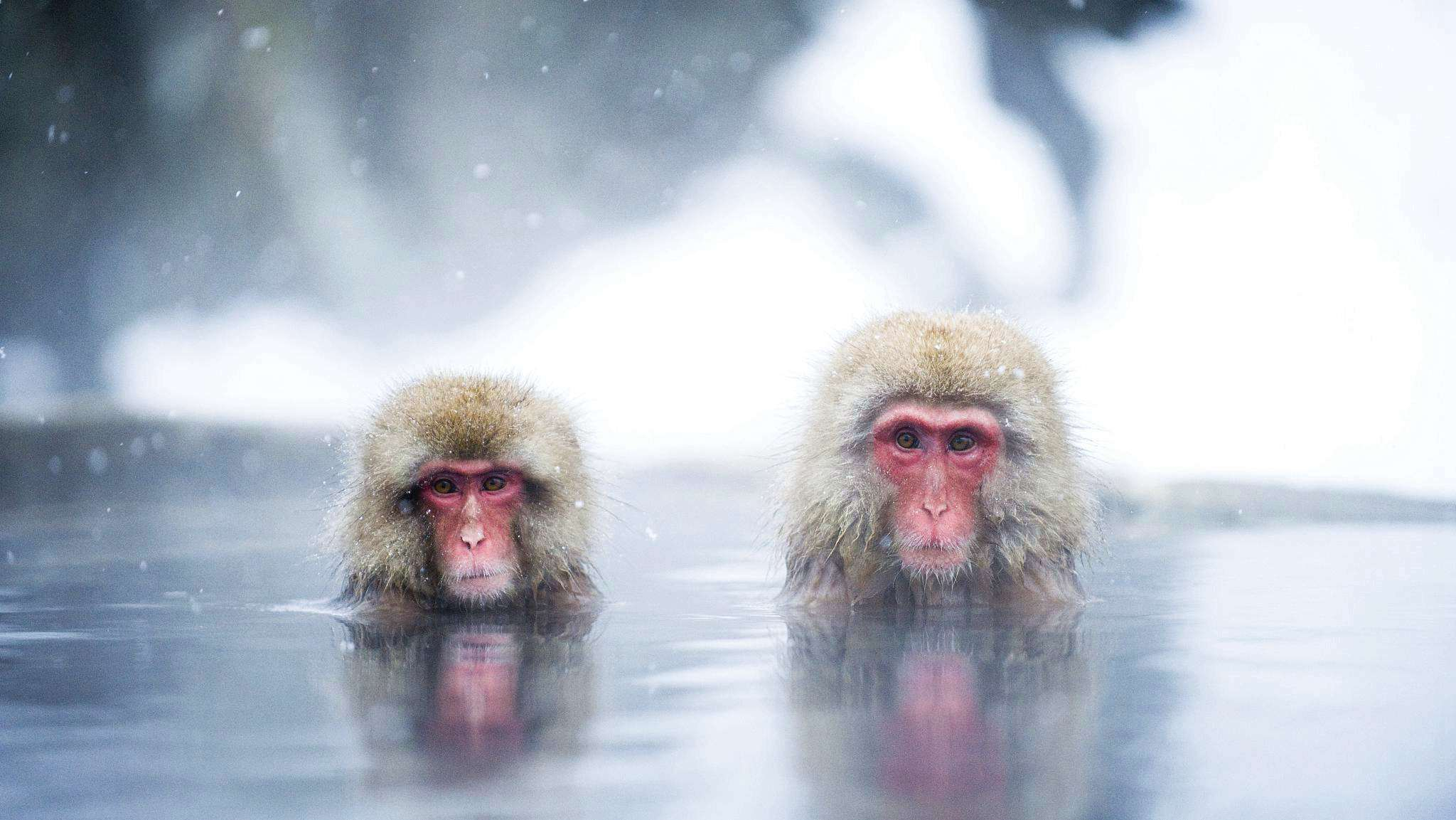In the chilly mountains of Japan, a peculiar group of primates has developed an unusual habit that’s both endearing and utterly fascinating. The Japanese macaque, also known as the snow monkey, has become famous for its odd yet delightful behavior: soaking in hot springs.
The Origin of the Hot Spring Habit
The Japanese macaque is native to the cold, mountainous regions of Japan, where temperatures can plummet to well below freezing during the winter months. To cope with the harsh climate, these clever monkeys discovered an unconventional way to stay warm. In the 1960s, one particularly enterprising female macaque was observed taking a dip in a hot spring near the Jigokudani Monkey Park. Soon, others followed suit, and the tradition was born. Today, entire troops of these monkeys can be seen lounging in the steaming waters, their faces blissfully relaxed as snowflakes gently fall around them.
A Strange Spa Day
What makes this behavior so intriguing is not just that the monkeys are using the hot springs, but how human-like their enjoyment of the experience seems to be. They gather in the pools, grooming each other, and occasionally squabbling for the best spot in the warm water. It’s almost as if they’re having a spa day, complete with socializing and relaxation. This behavior is unique to this population of macaques; despite living in similarly cold environments, other groups of Japanese macaques have not adopted the same habit.
The Science Behind the Soak
Researchers have studied this behavior and found that the macaques’ hot spring habit isn’t just for fun—it has genuine health benefits. Soaking in the warm water helps the monkeys reduce stress, as evidenced by lower levels of stress hormones in their bodies after a good soak. Additionally, the hot springs help them conserve energy during the cold winter months by reducing the need to generate body heat.
Monkey See, Monkey Do
Interestingly, this behavior is also an example of social learning in the animal kingdom. The hot spring habit spread through the group after being observed in a single individual, showing how quickly cultural practices can develop among animals. It’s a reminder that humans aren’t the only species capable of passing down traditions and learning from one another.
The Japanese macaques’ hot spring habit is a quirky and heartwarming example of how animals adapt to their environments in surprising ways. Their love for a warm soak in the middle of a snowy landscape not only provides them with comfort but also offers us a glimpse into the complex and fascinating world of animal behavior. So, next time you’re enjoying a hot bath, remember that somewhere in Japan, a snow monkey is probably doing the exact same thing!

